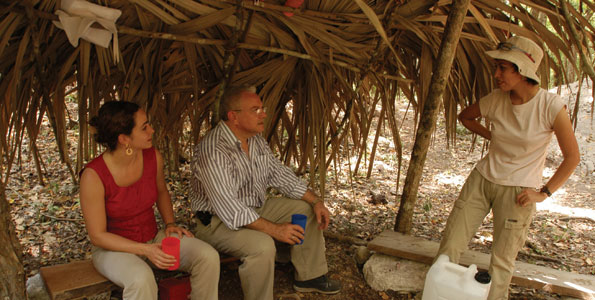Working Abroad
The prospect of working on an international assignment for any length of time can bring feelings of both excitement and uncertainty. The information below is designed to provide a brief insight into the issues that should be considered when taking on a foreign assignment. Specifics will vary by location and situation. More detailed advice, particular to the individual assignment, should be discussed with HR, once the terms of the assignment have been determined.
It is important to remember that moving overseas to work is very different from relocating in the US or Canada and that adequate preparation for an assignment in another country is necessary for you and your family, as well as the University.
Areas for consideration include:
Travel Logistics
It is important to learn what passport, visa, and immunization information is necessary for entry as well as what identification you are required to carry on your person. Refer to the Travel section of the website for more specific information on travel logistics.
Banking
You may need to open a local bank account for your personal banking needs. If possible, use your personal US bank to arrange an introduction with a local bank through their international network. A letter of introduction and confirmation of your account in the US could be very useful.
Certain documents that may be needed should also be taken with you. For example, your birth and marriage certificate are generally essential if you intend to open a joint account with a spouse and a recent utility invoice is also commonly requested. Refer to the International Banking section for more information.
It is also recommended that you take at least one credit and/or bank card that will allow you to withdraw funds directly from a US account while a local account is being established. In certain countries, credit and debit cards that are drawn on US banks may not work or, in the case of sanctions, may be blocked by the US Office of Foreign Assets Control (OFAC). You should check with your bank and OFAC before departure to ensure usability.
Language
It is always advisable to study the language of the host country well before departure; however, at minimum, learn common conversational phrases (greetings, asking directions, making simple purchases, etc.) that will help with basic needs when you arrive. It will also make a good impression on your hosts.
Cultural Awareness
Understanding some of the local customs and culture is important for socializing as well as doing business. Many common customs in the US can be considered rude or offensive in other countries. In addition, it is useful to understand food habits, appropriate conversation topics, and gift-giving protocol.
Ethical Conduct
When working in another country, local laws as well as local culture and customs can add complexity to this issue. However, you are expected to maintain the highest standards of honesty and integrity in all activities, both personally and professionally. This includes avoiding conflicts of interest and commitment, dealing with others honestly and in good faith, preserving confidentiality, making timely and accurate public disclosures, and complying with applicable laws, rules, and regulations.
Review the Code of Ethical Conduct for guidance on Boston University’s expectations and find more information on how to identify or report violations on BU’s Internal Audit website.
Lifestyle
Gathering as much practical information as you can about housing, schools, transportation, medical facilities, recreational activities, living costs, and available goods and services can help reduce anxiety and ensure you know what possessions to bring. Speak with expatriates who have already experienced working abroad to explore how to enjoy an active lifestyle with new friends and activities, which is especially critical if you have an accompanying spouse who will not be able to work abroad.
Tax Considerations
As a US citizen or resident alien, your income is generally subject to the same income tax and tax return filing requirements as if you were living in the US. However, there are several income tax benefits which may apply if you meet certain requirements while living abroad.
Depending on the length of your assignment, you might become subject to tax in your destination country as well; however there are ways of mitigating exposure to double taxation. There may also be filing requirements in the country of assignment, including arrival and departure documentation and foreign tax returns.
The Tax section of the Global Programs website has more information on how to manage tax compliance abroad; however ultimately, it is your responsibility to ensure that you are tax compliant both in the US and your country of assignment. You should seek professional advice on the taxation implications of your international assignment, as the University does not provide such advisement and does not cover potential additional tax costs related to personal income.
Social Security
In countries where social security reciprocity agreements (also called totalization agreements) are available, US Social Security and Medicare taxes continue to apply to wages for up to five years. Proof of exemption from paying social security in the country of assignment must be provided to the appropriate foreign authorities by means of a certificate of coverage (which certifies continuing coverage in the US). More information on international Social Security agreements abroad is available through the US Social Security Administration.
Benefits
There are benefits issues to be aware of as well when working abroad for an extended period:
- Pension: Certain countries may require that you participate in a mandatory pension scheme.
- Medical: BU offers a Blue Cross Blue Shield Out-of-Country Plan to employees; however, delivery of medical insurance coverage by a host country may be offered through:
- free medical services
- a medical plan
- a specialized international health plan
- an extension of their normal coverage (depending on the availability of services)
Human Resources should be consulted for any questions or concerns regarding provision of benefits abroad.






